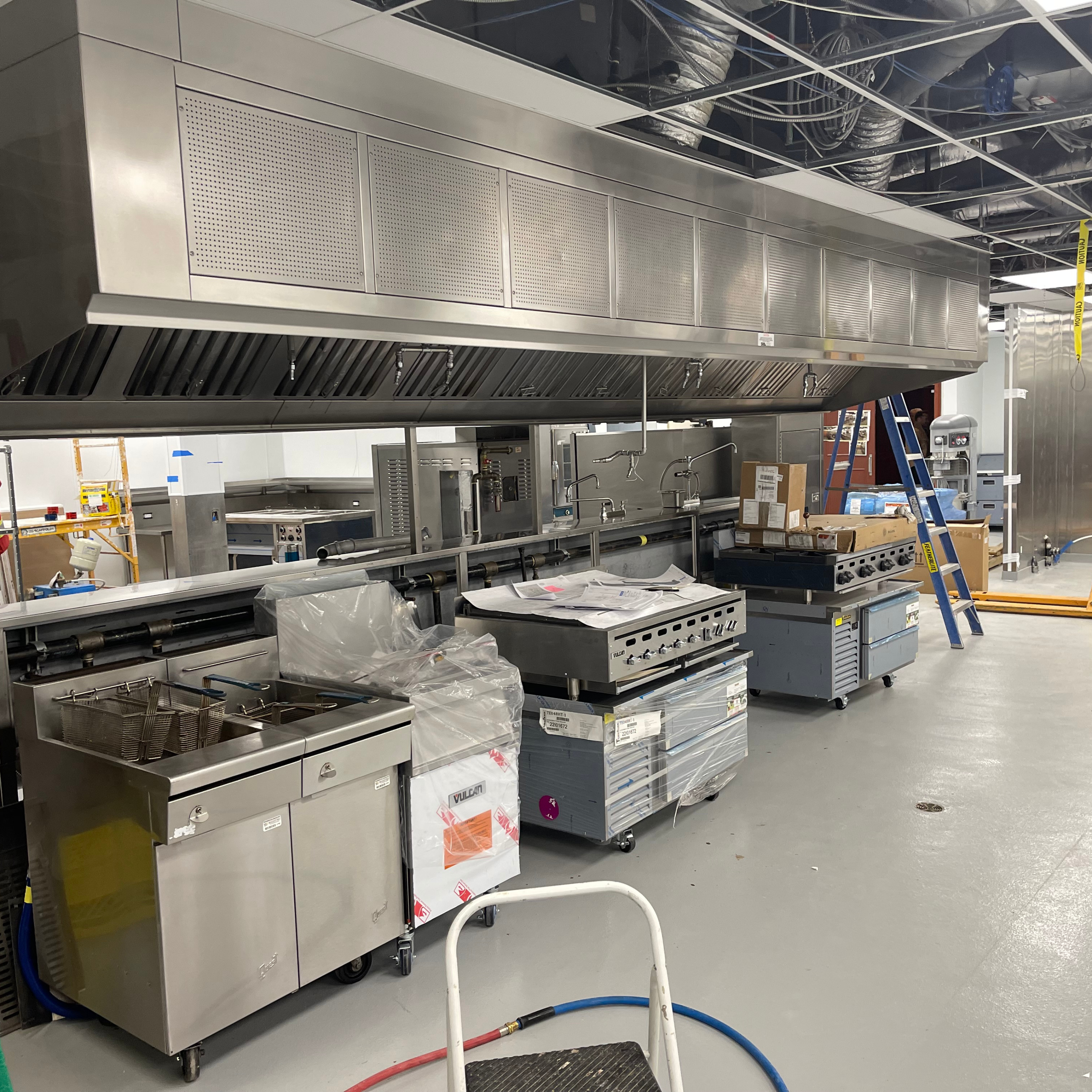
If you’re reading this article, you’re probably wondering what the installation and commissioning package on your estimate is and why you would even need it.
In short, installation and commissioning takes your project from a collection of equipment and tools to a functioning operation.
What does it include?
This line item includes:
- Assembly, setup, and calibration of your food equipment
- Testing, certification, and commissioning of building systems (fire suppression, ventilation, etc.)
The components for your product will arrive onsite unassembled and will need to be set up. There are many pieces and variables at this point that not only need assembly, but installation. Certain pieces may require specialized equipment to install and calibrate correctly.
Installation and commissioning start when our expert teams assemble, stack, set in place, and secure your equipment. We then work with your team to ensure that all of your systems meet code and function correctly. Finally, we work with local officials to arrange the inspection and certification of your equipment and systems. This allows you to close off work permits and begin operation.
Finally, the complete project is cleaned, and any protective wrapping removed and reviewed to ensure that the fit, finish, and operation meet the specifications and outcome of the customer. This installation process is critical in ensuring not only the practical but emotional success of your project.
Why wouldn’t I just do this myself?
At this point, you might be wondering why you shouldn’t eliminate this line item and coordinate everything yourself.
In the same way that a chef can use the same tools and ingredients to produce a superior meal, our team of experts has the experience and resources to avoid a stress-filled project and ensure that your kitchen is finished on time and with everything working properly.
Bear in mind the following points:
- Commercial projects require specialized trades with specialized equipment to install your equipment.
- Incorrect installation of appliances or safety systems leads to increased costs, both in money and time.
- After installation, certified experts are needed to ensure that equipment is correctly calibrated and commissioned to avoid voiding the manufacturer’s warranty.
A commercial kitchen is a system, not just a few pieces that work independently. Choosing to eliminate the installation & commissioning, or canceling it after the project gets underway, means that you take full responsibility for the assembly, stacking, set-in-place, and securing of the equipment. You would also need to find certified trades and industry experts to ensure that your systems meet code, and that your appliances are commissioned in accordance with the manufacturer guidelines.
What makes SFI Hospitality different?
SFI Hospitality has a core approach to projects, the No Surprises Approach. When you see the installation and commissioning package on your quote, you know you’re getting the peace of mind that:
- Your project will be completed on schedule,
- Your equipment will be commissioned properly with the warranty intact,
- Your vital safety systems will be tested, certified, and activated,
- And we’re on-call throughout the project if anything goes wrong.
In conclusion, building commercial kitchens is part science, part art. There are many projects where doing it yourself would allow you to save money, but a commercial kitchen isn’t one of them.
